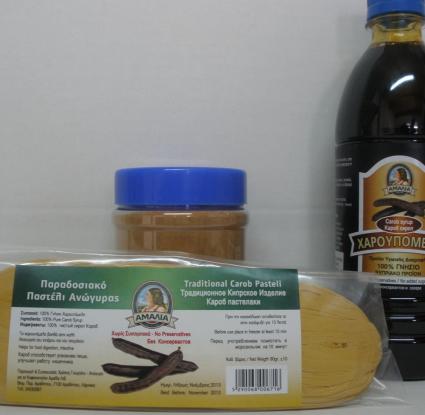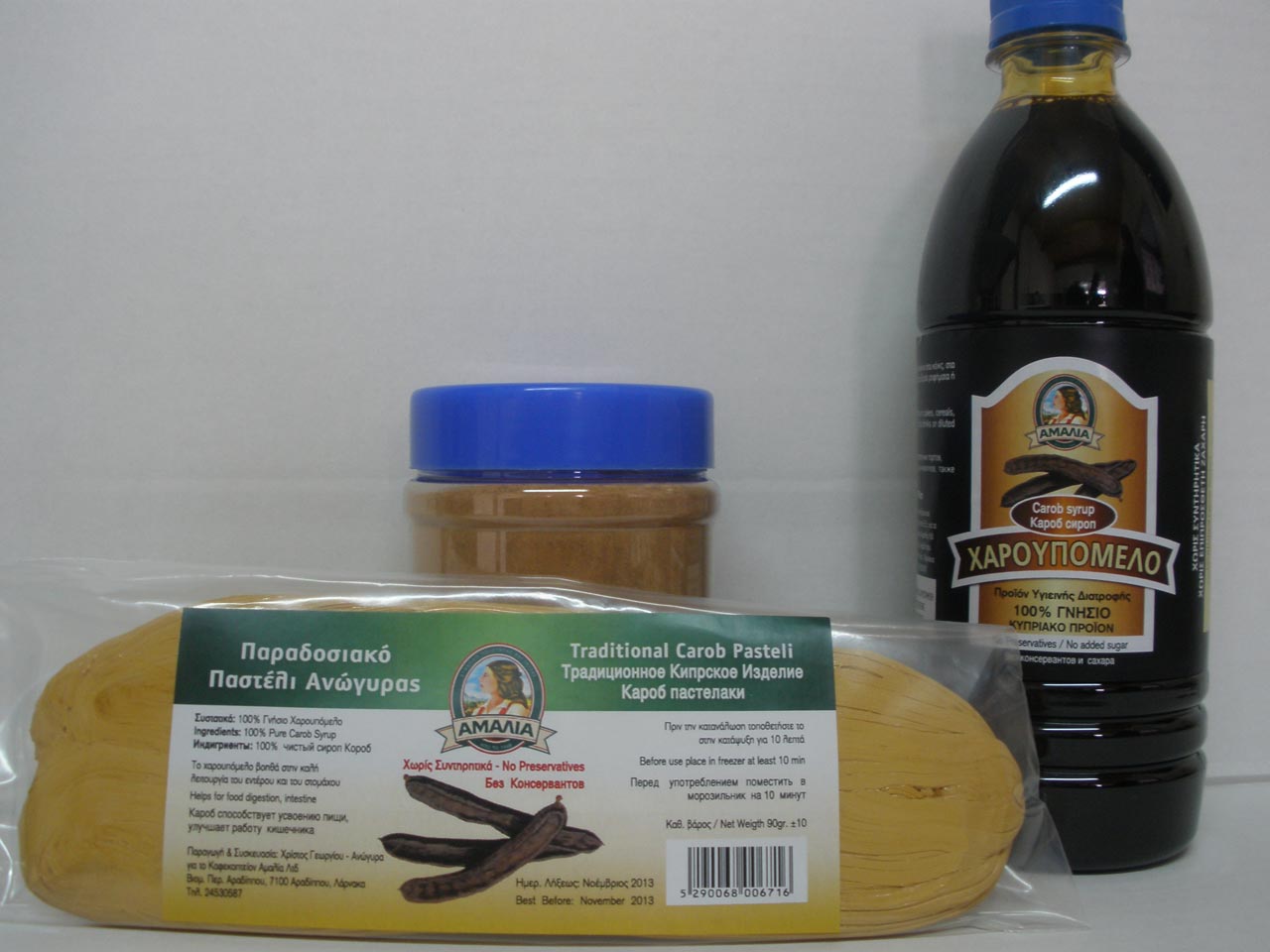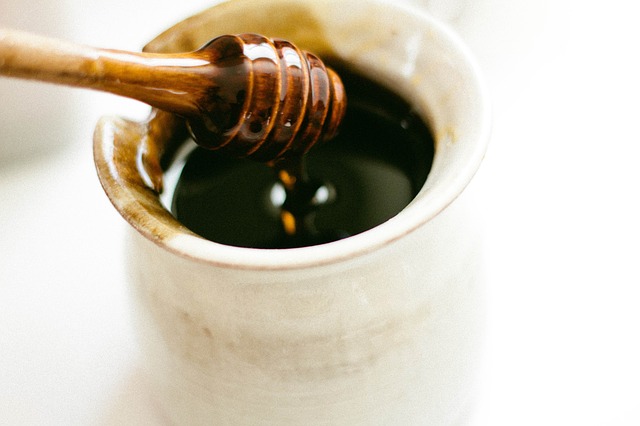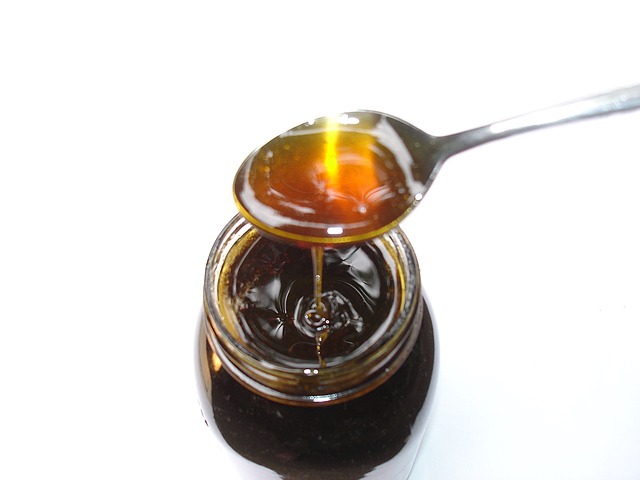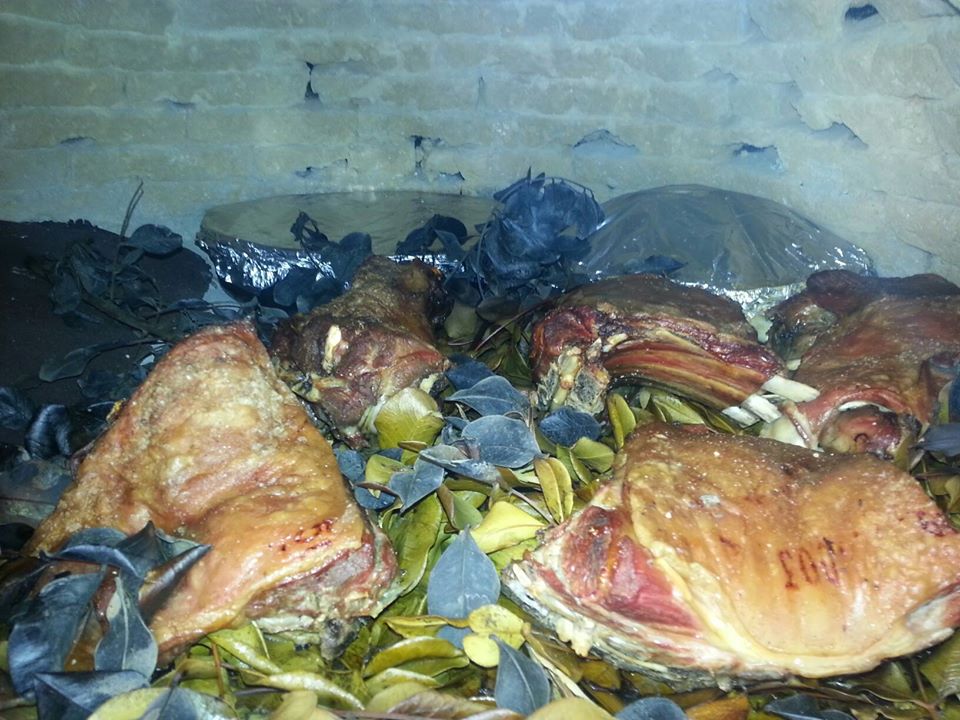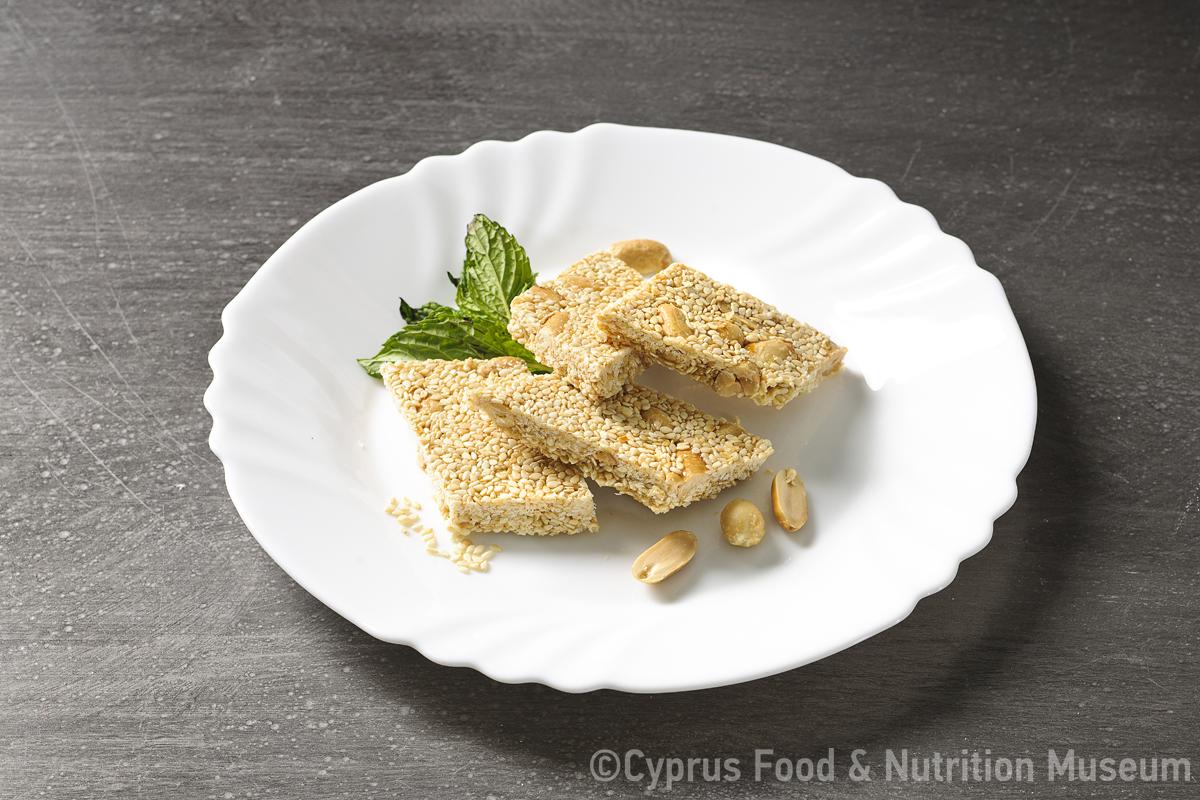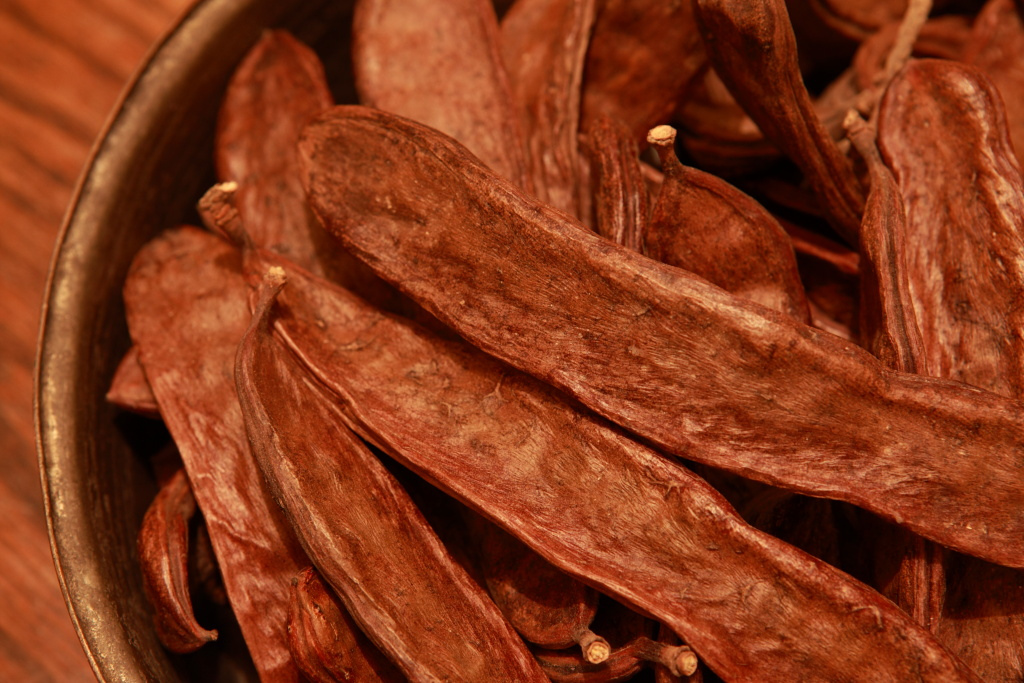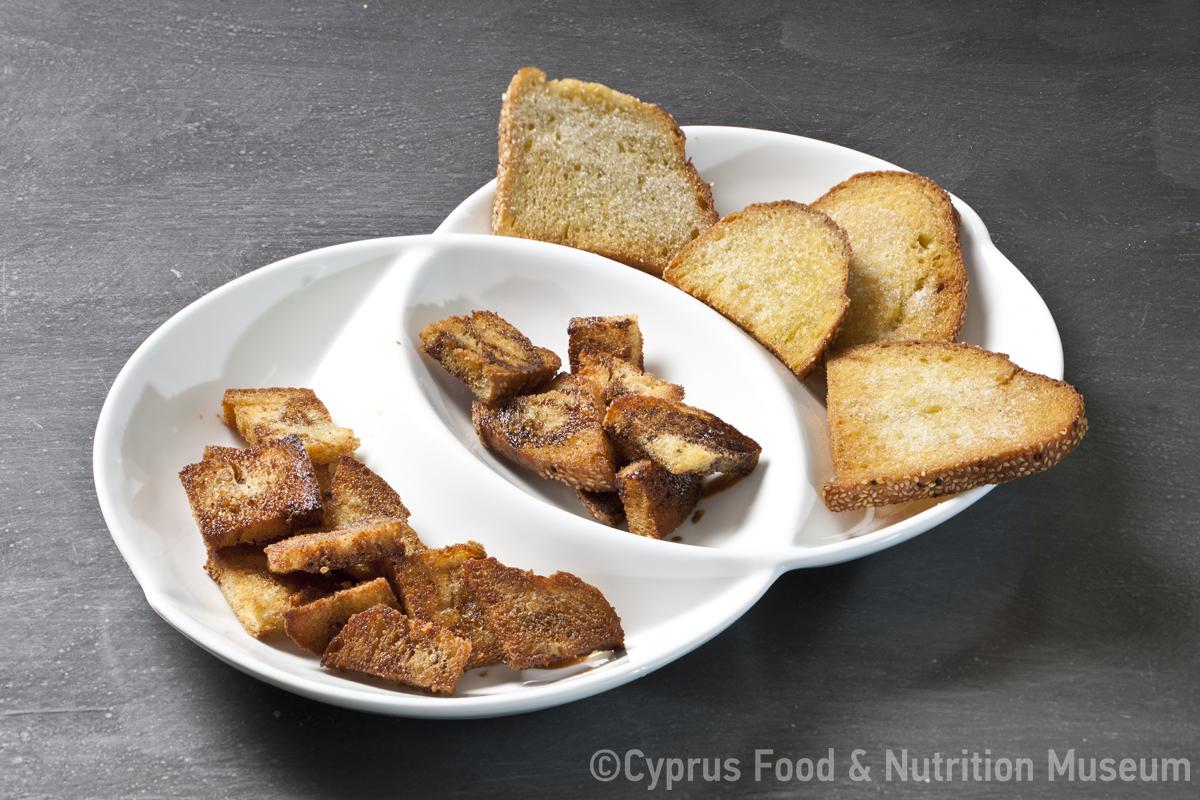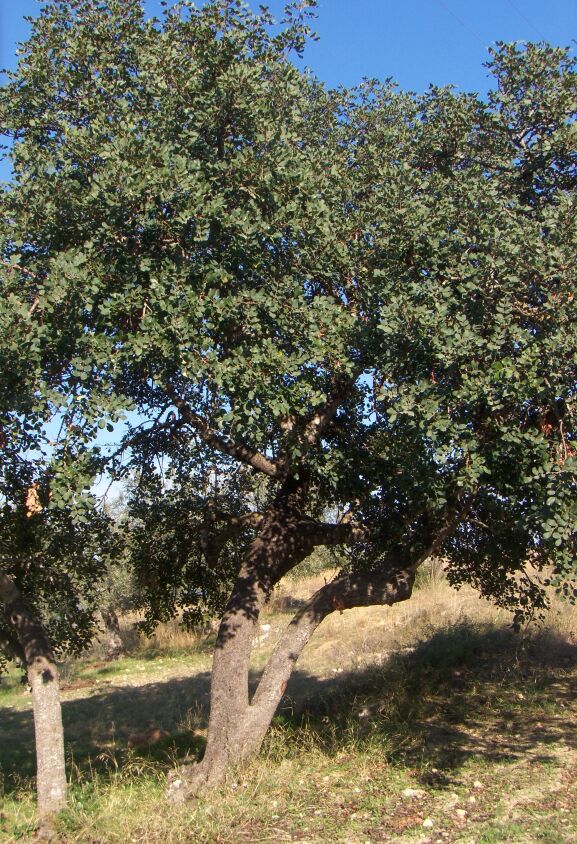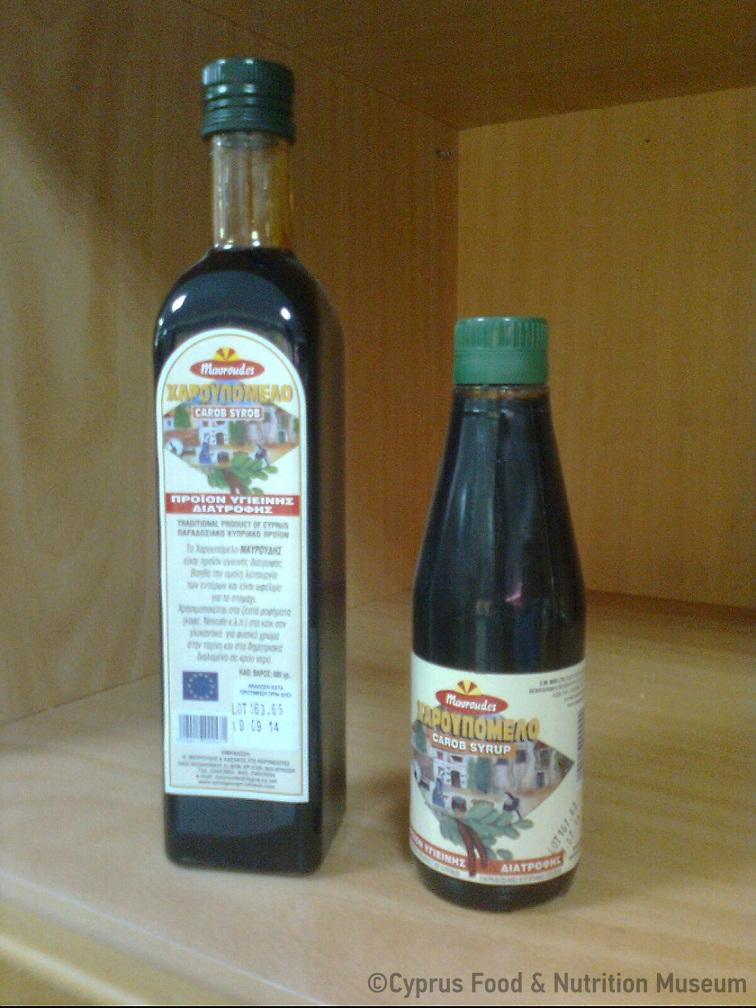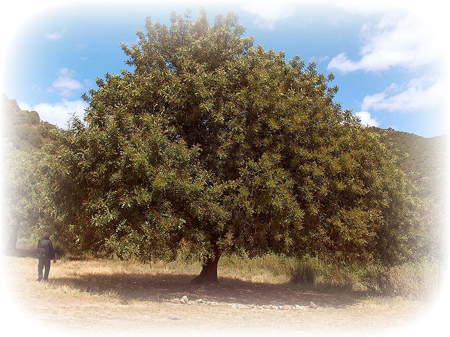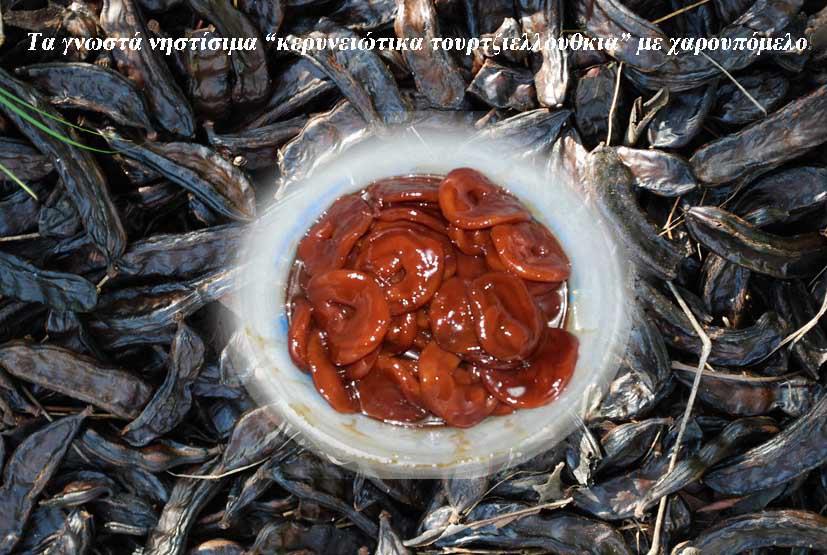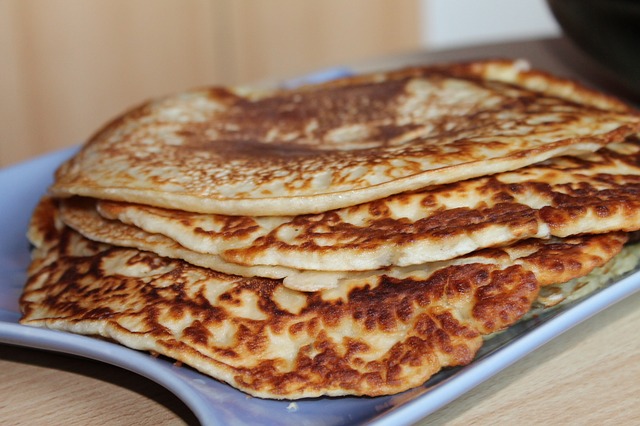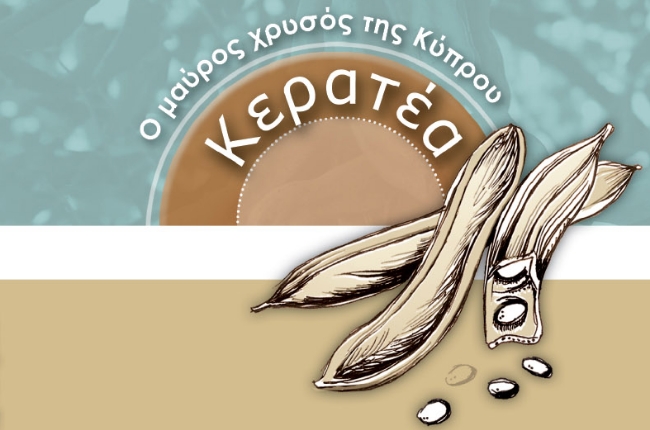Name - Origin
Haroupomelo is the syrup produced from carobs. It is thick and dark red in colour. A sweet made in Anogira with carob syrup is called pasteli
The word 'pasteli' is French (pastel) and was established in the days of the Franks (rule), who also taught the art of making it (Clerides, 1961).
Carob syrup is also called carob honey. Note: Stalo Lazarou.
Method of production: Once the carrobs are collected, washed and dried, they are ground in a mill. They are left to soak in water for about 20 hours and are then transferred to baskets placed on a tilted board. The carob juice (sherepetti) drips from the baskets and is boiled in large cauldrons (hartzia) with continuous stirring for about 7 hours until it becomes thick. This juice is called haroupomelo (carob syrup). If the syrup is continuously stirred for another 4 hours, it turns into a dark, amorphous mass. This thick mass is left to cool so that it can be shaped by hand. Then, a quantity of 1-2 kg of this mass at a time is "hung" on a wooden stick which is fixed on the wall. This mass is skillfully pulled, stretched, braided, pulled again. The process is repeated several times until the mass takes on a blond, golden colour. This is the Anogyra pasteli.
Functional and symbolic role
Haroupomelo (carob syrup) is used for the preparation of pasteli and in various traditional sweets such as 'tertžellouthkia', tahini with haroupomelo, tahinopitta with haroupomelo and others. It is also a spread on bread, in some cases it is mixed with olive oil and consumed with hot bread. Pasteli Anogiras is consumed on its own as a dessert
Pastelli was sold in fairs (note:Stalo Lazarou)
Additional information and bibliography
History: References to carob syrup date back to ancient times. 'And from these (i.e. the carobs) they extract carob honey, commonly called teratsómelon' (Sakellarios, 1885). 'But out of the fruit (of the carob tree) they make a peculiar and very sweet syrup, which they call carob honey' (Richter, 1913). Pasteli is mentioned in Assisi as a taxable product. The word 'pasteli' is French (pastel) and was established in the days of the Franks, who also taught the art of making it (Clerides, 1961). In September every year, a pasteli festival is held in Anogyra. Before the Turkish invasion of 1974, the region of Kazafani was the leading region in the production of pasteli (Paridis, 2006).
Ministry of Agriculture, Rural Development and Environment, Department of Agriculture (2022), Gastronomical Map of Cyprus, A feast of flavour, Nicosia, Press and Information Office, PIO 40/2022-5.000.
Stalo Lazarou

